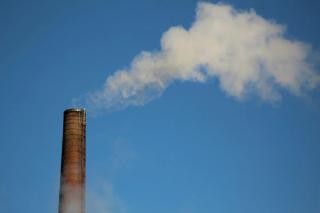
Navigating the evolving landscape of corporate sustainability and communications in the US
by Chynna Pickens
View post

Methane (CH4) - you and I know it as the main constituent of ‘natural gas’. The same gas we burn in our domestic boilers for warmth, and the same gas that still provides around 31% of the UK’s annual electricity generation [1].
We are also all mostly aware that when we burn methane, we produce carbon dioxide (CO2), our nemesis of the post-industrial era. But on its own, methane in its un-combusted form, is itself the 2nd most important Greenhouse Gas with 84 times the global warming potential of CO2 over a 20-year period. Reducing methane escaping into the atmosphere is a key driver in achieving Net-Zero goals; buying time as society attempts to decarbonise and reduce the speed of global climatic change. In the short-term, methane is recognised as assisting the energy transition away from oil and coal while ‘keeping the lights on’ at home.
As methane is extracted, processed and moved around the world, commonly in its liquefied form (LNG) it escapes into the atmosphere, from the simple mechanics of moving it around, sometimes deliberately (as a last resort) to avoid a safety incident, and sometimes as an unwanted by-product.
The world has now accepted that a substantive reduction in methane emissions is essential to help avoid dramatic climatic change. The Global Methane Pledge (GMP) [2] launched at COP26 and signed by 111 countries aimed to catalyse action to reduce methane emissions by 30% below 2020 levels by 2030, which could eliminate over 0.2˚C warming by 2050.
SLR is helping industrial leaders reduce methane emissions. This is supported by our accredited auditors with MiQ, the fastest growing and most trusted methane emissions certification standard. Our audit team has advised, and continues to assist, facilities and operators to certify their ‘Methane Intensity’, working towards a dramatic reduction in emissions.
Recently the EU has introduced the first piece of EU legislation [3] aimed at cutting direct methane emissions from the oil, fossil gas, and coal sectors, and from biomethane once it is injected into the gas network.
The new proposals require:
In the UK, the Environment Agency has also released the Methane Action Plan [4] to reduce and prevent emissions from regulated sectors, such as landfill sites, and anaerobic digestors operating under Environmental Permitting Regulations (EPR).
Now is the time to act on methane, and SLR can help you do this. SLR is already helping clients build a cultural awareness within their organisations, set up protocols and operational methods, and achieve their methane certification goals.
If you would like to know more or would like to see how SLR can help you achieve a myriad of Net-Zero and ESG goals, please get in touch.
----------------------------------
References
[1] https://grid.iamkate.com/ (As recorded on for the past year)
[2] https://www.globalmethanepledge.org/
[3] https://www.europarl.europa.eu/news/en/press-room/20240408IPR20309/methane-parliament-adopts-new-law-to-reduce-emissions-from-energy-sector#:~:text=The%20new%20regulation%20is%20the,injected%20into%20the%20gas%20network.
[4] https://miq.org/
[5] https://www.gov.uk/government/publications/environment-agency-methane-action-plan/environment-agency-methane-action-plan-2024-to-2026